The Irrawaddy Magazine |
- KNU Leaders Call for Continued Struggle on 70th Anniversary
- Activists Stage Protest as Statue of Gen. Aung San Goes up in Loikaw
- Military ‘Never Said’ it Opposes Amending Constitution: Commander-in-Chief
- KBZ Brings ‘Loving-Kindness’ to Myanmar Banking
- Central Bank Allows Yen, Yuan Transactions
- Former General to Form New Party to ‘Support State Counselor’
- Villagers Issue Plea for Help over Huge RCSS Tax Demand
- Yangon Timeout
- International Watercolor Festival Comes to Yangon
- Malaysia Says Still Negotiating With China on $20B Rail Project
| KNU Leaders Call for Continued Struggle on 70th Anniversary Posted: 31 Jan 2019 07:22 AM PST PAAN District, Karen State—70 years on, the spirit of the Karen national revolutionary movement remains strong among the young, adults and the elderly, even after more than seven years of peace talks between the government and the Karen National Union. Unlike in past years, the KNU carefully planned this year's event near their headquarters in Paan District of Karen State, close to the Thai border. It included an exhibition showcasing the history of the KNU, generations of Karen revolutionary leaders and the KNU's ongoing peace talks with the government. It is the biggest such commemoration ever held by the KNU, a signatory to the Nationwide Ceasefire Agreement (NCA). On Wednesday night, events were held to entertain those in attendance, who included Karen from the area, from across Karen State and Myanmar, and even from abroad. These included a music concert, traditional Done dancing and other festivities. Thursday marked the 70th anniversary of the day in 1949 when the KNU began its resistance following the central government's denunciation of the group as an unlawful organization after months of protests demanding equality for the Karen people. At the anniversary event, ethnic leaders urged all Karen to continue to support the struggle for basic rights and equality. Addressing the Karen attendees in their native language, KNU chairman Saw Mutu Sae Poe said, "At this time, though we have not reached our political goal of freedom, equality, autonomy and peace in the country—[and] the establishment of a democratic federal union for the Karen people and for all ethnic nationalities—we still can stand up firmly in our movement." He said the Karen people had made an enormous sacrifice over the past seven decades, and not only on the battlefield. He reminded the audience that many civilians had been forced to become IDPs and refugees. He said that because of this hardship, "hatred, bitterness and distrust have arisen among them." Echoing the chairman's speech, Padoh Mahn Nyein Maung, a KNU executive committee member who is in his 70s and has been part of the revolutionary movement for 50 years, told The Irrawaddy, "Although it has been more than 70 years since the beginning of the Karen's struggle for equal rights, we have not reached our goal." He told The Irrawaddy on Thursday, "Our path and our history of Karen revolutionary effort has been hard. There has been so much sacrifice and loss." He urged young people to keep up their resistance activities until equality can be achieved between the majority Bamar and the minority ethnic groups like the Karen. "The young must continue to take responsibility, and must not forget about the Karen revolutionary leaders, as well as the soldiers who have sacrificed their lives," he said. The leaders' messages appeared to have been taken to heart by the younger members of the community in attendance. The Irrawaddy talked to few young people who were keen to show their strong spirit and their pride in the resistance movement. Saw Kae Doh from Hlaine Bwe Township in Karen State was attending his first KNU anniversary event. He said young people such as himself "need to keep on following the path laid out by the Karen leaders until [the community's goal] is achieved." But he hoped the Karen leaders would be able to achieve genuine peace. Padoh Saw Tadoh Moo, the current secretary general of the KNU, said the 70th anniversary commemoration was an opportunity to highlight the group's struggles and its latest peace efforts. "Genuine peace is needed to attain our rights, which have long been denied us, and also to restore democracy, which we lack," he told The Irrawaddy. He added that informal talks would be held soon between the KNU and the government and Myanmar military (or Tatmadaw) leaders to resolve the latest deadlock in peace talks. Karen State Chief Minister Daw Nang Khin Htwe Myint joined the event and delivered a speech urging everyone to support peace negotiators in order to achieve peace for future generations. "Everyone here knows that our state has been underdeveloped for decades due to a lack of peace," she said, urging people to work together so that Karen State could make progress. Padoh Saw Tha Mein Tun, another KNU leader, echoed that sentiment, urging the people to keep working to achieve peace, adding that the revolutionary movement had kept the Karen people strong for 70 years. He said, "It has been both good and bad, [and we have seen] success and failure [during this resistance journey], but we keep our flag raised high; that is the Karen spirit." The Karen people must continue in the same spirit because "we Karen people are determined to keep resisting," he said. The post KNU Leaders Call for Continued Struggle on 70th Anniversary appeared first on The Irrawaddy. |
| Activists Stage Protest as Statue of Gen. Aung San Goes up in Loikaw Posted: 31 Jan 2019 06:51 AM PST The Kayah State government put up a statue of slain independence hero General Aung San in the state capital Loikaw on Thursday as dozens of local ethnic rights activists staged a protest nearby. The activists began their peaceful protest at 2 p.m., sitting inside the park where government workers were erecting the statue. The state government deployed a heavy security presence at the park, where a line of police clad in riot gear stood between the protesters and the workers. The protesters eventually moved to a camp they set up outside the park. Throughout the day, the activists used loudspeakers and made a series of speeches directed at members of the public, who largely remained outside the park. The activists said the state government was wrong to put up the statue, as the majority of Loikaw residents opposed it. A number of ethnic communities around Myanmar have staged protests against statues of General Aung San in their states, viewing them as an attempt by the central government to impose control from outside and assimilate them. If the National League for Democracy-led government felt obliged to put up a statue in Loikaw, the activists said, they should put it in front of the NLD's office in the town, not in a public place. The government's actions disrespected the feelings of local people, they said, adding that the government used its power to do whatever it wanted while ignoring the wishes of indigenous people. The rights activists also said the NLD government had a political purpose for putting up the statue. "This isn't fair. Their actions are an insult to we indigenous people," one of them said. After protesting inside the park for about two hours, the activists moved from the park to another site where opponents of the statue have set up a camp as an ongoing protest. Khun Thomas, a member of the Kayan New Generation Youth organization, told The Irrawaddy that the group set up the camp near the park to make the government aware of its opposition to the statue. "We have opened the 'strike' camp. We do not know how long this strike will last, but we will stay at the camp. If police crack down on the protesters at the camp, it will be the responsibility of the state government," Khun Thomas said. The activists asked the government to negotiate with them at the camp as soon as possible. Some police officers arrived at the camp and ordered the activists there to remove it, saying it was established without permission. "They told us it was a restricted area. They threatened to take action if we refused to withdraw," Khun Thomas said. The activists ignored the police warning, but no arrests were made. A group of activists met with Kayah State Minister of Planning and Finance U Maw Maw on Thursday at his office. U Maw Maw told them it was State government project, and he was powerless to stop it. Kyaw Htin Aung, one of the activists who met with U Maw Maw, asked to be allowed to meet with the leaders of the project, but was told the project team refused to meet protesters. Kyaw Htin Aung then demanded the government disclose the cost of putting up the statue, but U Maw Maw refused. The statue of Gen. Aung San arrived in Loikaw on Tuesday, against the wishes of many local residents. The post Activists Stage Protest as Statue of Gen. Aung San Goes up in Loikaw appeared first on The Irrawaddy. |
| Military ‘Never Said’ it Opposes Amending Constitution: Commander-in-Chief Posted: 31 Jan 2019 04:44 AM PST NAYPYITAW — Commander-in-Chief Snr. Gen. Min Aung Hlaing on Thursday insisted that the military has never said it would not amend the country’s Constitution, responding to media questions about his views on changing the charter. "[I] have already agreed to amend [the Constitution]. [I] never said the Constitution would not be amended," he said at a military exercise in Mandalay Region. "[I] have said [that I agree] many years ago, since the time of the first [civilian] government. But it is important that [the Constitution] is amended systematically. And I have nothing to say about anything else. [The Constitution] will be amended when it is necessary," he added. Upper House lawmaker U Aung Kyi Nyunt, a central executive committee member of the ruling National League for Democracy (NLD), submitted a proposal to Parliament on Tuesday to form a joint committee comprising fellow lawmakers to draft amendments to the Constitution. Military lawmaker Brig. Gen. Maung Maung complained during the session that the formation of such a committee was not in line with established procedures, adding that legislators should not resort to deceit or craftiness. When the speaker rejected his complaint, all the military lawmakers took to their feet — their customary method of displaying their displeasure with NLD motions they disapprove of. Their defiance prompted the speaker to ask sarcastically, "What does it mean?" The speaker explained that the proposal to form a committee represented an all-inclusive approach to constitutional reform and that it allowed for debate. Parliament subsequently voted to discuss the proposal at a later date. On Thursday, U Aung Kyi Nyunt told reporters in Naypyitaw that his proposal to form a committee was not intended to serve the interests of a particular person or party, but of the country. He said the proposed amendments have not been predetermined and would be discussed by the committee, which would be inclusive. "What we are saying is simple. It is time [to changed the Constitution] for the future of our country. I don't say what should be and what shouldn't be. The point is what kind of country you want to leave future generations. Let's think about it together. This is the objective,” he said. "As the military representative said, his proposal is not even an urgent proposal. But the fact that such a proposal even had to be put to a vote damages the dignity of the Union Parliament or the legislative branch," Lower House lawmaker U Thaung Aye told The Irrawaddy. Brig. Gen. Maung Maung, who leads the military’s lawmakers in the Union Parliament, questioned the NLD's motives in moving to amend the Constitution only one year before the 2020 elections when it could have started sooner. "There is not much time left, and they are not transparent with their intentions. We view their efforts to amend the Constitution to be hasty. And [the NLD] overstepped the procedures. Such acts are not democratic," he told reporters. The NLD holds 59 percent of the seats in Parliament, ethnic parties 11 percent, the military-backed Union Solidarity and Development Party 5 percent, and the military itself — as per the Constitution, which it wrote — 25 percent. The Constitution also states that the charter cannot be amended without approval from more than 75 percent of lawmakers. While military leaders do not explicitly object to seeing the Constitution amended in public, they often say it needs to be protected and that it holds the key to holding the country together. Translated from Burmese by Thet Ko Ko. The post Military ‘Never Said’ it Opposes Amending Constitution: Commander-in-Chief appeared first on The Irrawaddy. |
| KBZ Brings ‘Loving-Kindness’ to Myanmar Banking Posted: 31 Jan 2019 04:18 AM PST YANGON — It all started with a poll, when an overwhelming 85 percent of the employees of Kanbawza, Myanmar’s largest bank, picked “banking with Metta,” or loving-kindness, to be the company’s core value. Emboldened by the results, the bank decided to address the current state of Myanmar’s banking sector — inconvenient, inefficient and bare bones — by making 2019 “the year of Metta” to transform the industry’s culture from the inside out. KBZ Deputy CEO Daw Nang Lang Kham tells you more here about the bank’s motives, why it is placing loving-kindness at the heart of its efforts to see Myanmar reach full financial inclusion, and its hopes that others will also be guided in the choices they make by Metta, compassion and a deeper understanding of themselves and their communities. What is your motive to make 2019 the year of Metta for KBZ? At KBZ Bank, we have a bold vision…to improve the quality of life through banking and achieve 100 percent financial inclusion in Myanmar. We believe that upholding Metta, or loving-kindness, as a universal value is critical to achieving this. From the way our teams work everyday to how we develop products and serve our customers better, we want to hold ourselves to a commitment of being good to others and always doing the right thing. What inspired you to embark on The Year of Metta movement? As the largest privately owned bank, our journey to banking with Metta began with recognizing the critical role thousands of us play as change agents in society. In a poll we conducted, 85 percent of employees at KBZ Bank responded in support of banking with Metta as our most critical value. As this was the direction we collectively wanted to pursue, we put this to action and embarked on a bold transformation from the inside out, led by our CEO, Mike DeNoma, to bring loving-kindness to our communities and society. We recognized that the banking sector is still evolving and has yet to win the hearts and minds of everyday people in Myanmar. In a recent study, we found that banking services in Myanmar today are not as convenient, simple, time-saving and value-adding as they need to be. Reflecting on this, we made a commitment to address this gap by transforming our culture from the inside out to better care for the community we serve. Why is it important that Metta be your company’s core value? Being good to people and doing the right thing might seem like a simple principle, but this is rare and revolutionary for a bank. It is a transformation that requires a clear commitment from all. As 85 percent of our employees voted for Metta to be the most critical value we uphold, we were moved and compelled to act on this. Today, KBZ Bank stands as the only financial institution in the world guided by loving-kindness. As a force of thousands of employees situated across the country, we want to internalize this value and set the example for those around us in having compassion and a deeper understanding of self and those we serve. Apart from Metta, are there any other values the company wants to uphold? Along with Metta, we are guided by the principles of Thet Ti, or courage, and Virya, or perseverance. Metta, Thet Ti and Virya are interlinked. One cannot exist without the other two, and all are key to realizing our ambitious goal of reaching 100 percent financial inclusion in Myanmar. You have to be courageous to make bold decisions and take risks, but also have compassion and loving-kindness to make sure these bold decisions are for the betterment of the community and society. We combine these with Virya as the journey to financial inclusion [is a] long road and you need perseverance to reach your destination and accomplish the ultimate goal. What impact will making Metta a core value of KBZ have on the company and its customers? Loving-kindness is a powerful and transformative value and we have this running throughout the entire organization. From the way our teams work every day in pursuit of a common goal, to the way we manage our differences, we encourage everyone to build a thriving community with Metta, loving-kindness, ingrained in its foundation. Whether through verbal or written communication with one another or through our interactions on social networks, we are pursuing a culture of mindfulness in our actions and reactions. We are also embracing Metta in the way we operate, develop products and serve our customers better. Loving-kindness gives each [person] in our team a powerful ability to empathize with customers and their communities and to respond decisively with genuine care and commitment to serving them. What are your plans to spread Metta in your company and in Myanmar as a whole? We have reorganized our entire business on banking with Metta, beginning with presenting CEO Awards to recognize employees who live and…exemplify these values, and factoring this achievement in career development. Our products and services are also conceived from loving-kindness. For example, KBZPay, our mobile wallet, was developed as a way to offer more convenient, flexible and simple financial services to millions of customers who may not have a bank account. With fund transfers, mobile airtime top-ups, QR code payments and other essential financial services at the tap of a finger, millions of people no longer need to spend hours and thousands of kyat travelling to our branches to transact. There are many more Metta-based features coming onto KBZPay and we are excited to introduce these to our customers. We have also made our services more accessible by moving beyond the doors of the branch. We implemented a territory model where over 500 of our branch teams reach out to their townships and surrounding communities across the country to introduce innovative banking services like KBZPay, our mobile wallet, to millions, and help understand how financial services can improve their lives. Through these innovative products and services, we want to create a sustainable future for people in Myanmar. We believe that upholding Metta is more important than ever when the world is full of hate speech even on social media. How do you think loving-kindness can reduce the hate speech we see and heard in our everyday lives? Loving-kindness embraces a culture of empathy. It does not respond to anger with anger, but instead brings patience and a will to understand how the other might feel, the underlying circumstances they might be facing, and ultimately offer to resolve the problem. This is a powerful force of positivity that I and many friends, family and colleagues aim to encourage in each other's interactions daily. It gives each of us the powerful ability to guard our speech and actions, especially when managing our differences. By empathizing with others and their circumstances, we are able to reflect calmly and respond decisively with genuine care. From verbal or written communication with one another to our interactions on social networks, we want to encourage everyone to pursue a culture of mindfulness in our actions and reactions. Your message to others on loving-kindness is…? Embracing Metta is not about having unlimited generosity and giving into what others please. Instead, I see it as a strength that one has in encouraging positivity in the way you go about your everyday lives. Whether you are in school, at work or at home, take each and every opportunity to be concerned for one another and have the courage and perseverance to help each other succeed. This is what will have a profound impact on our country and its future. To what extent do you believe the Metta movement will succeed? Have you received any positive feedbacks so far? Banking with Metta is not our ultimate mission, but the DNA and values-driven culture that will enable us to accomplish our goal — improving the quality of life through banking and achieving 100 percent financial inclusion in Myanmar. Beyond KBZ Bank, my hope is for Metta to be a positive movement among all in society. We may not be able to determine how others act or react, but we can each do our part and raise awareness on the need for loving-kindness, and encourage a deeper sense of care for one another. What kind of working environment do you want to see in society? A society that prioritizes mutual respect, maturity in action, taking responsibility and having a sense of accountability. One filled with individuals who have a deep understanding of self, their immediate surrounding, and the wider community. People should recognize their inner gifts and talents, the impact they have as a person…and the difference they can make. Our ultimate aim is to improve the quality of life through banking and realize 100 percent financial inclusion in Myanmar. This means creating more access to financial services that provide the freedom and security for all to pursue what matters most in life. As we work towards this, our hope is that others too will be guided in their decision-making by loving-kindness, compassion and a deeper understanding of themselves and their communities as a whole, and work to create a sustainable future for one another. The post KBZ Brings ‘Loving-Kindness’ to Myanmar Banking appeared first on The Irrawaddy. |
| Central Bank Allows Yen, Yuan Transactions Posted: 31 Jan 2019 03:13 AM PST YANGON — The Central Bank of Myanmar on Wednesday announced that it will now allow the Japanese yen and Chinese yuan to be used as a settlement currency for international payments and transfers. The move came after Chinese investors urged the Ministry for Investment and Foreign Economic Relations to reform Myanmar’s foreign currency exchange policies during the Invest Myanmar Summit 2019 in Naypyitaw on Tuesday. In a statement, the Central Bank said the policy change aims to facilitate international payments and settlements and border trade. It said banks authorized for foreign exchange can now open yen and yuan accounts and settle trades in those currencies. But opening personal accounts or registering legal entities in yen or yuan is still prohibited. Since the National League for Democracy took power in early 2016, the government has moved slowly to reform the banking sector. Since August, however, the Central Bank has made some major reforms, including dropping exchange rate limits on private banks and exchange counters in a bid to prevent currency manipulation and settle recent fluctuations in the Myanmar kyat. In November it allowed foreign banks to lend and provide other services to domestic companies in order to help exporters being limited by the services of local lenders. "The move is only the first step in making official transitions for trading and any payments with internationally" currencies, said Saw Bo Bo, a former Citibank officer. "If you want to transfer Chinese currency to China, you have to go to the bank and exchange it [kyat] with yuan. Then the bank will transfer the money to the receivers. Further reforms should let the people open personal accounts" in yen and yuan as well, he said. The post Central Bank Allows Yen, Yuan Transactions appeared first on The Irrawaddy. |
| Former General to Form New Party to ‘Support State Counselor’ Posted: 31 Jan 2019 02:37 AM PST NAYPYITAW—The aim of the political party to be established by ex-general and former Lower House Speaker U Shwe Mann, is to support State Counselor Daw Aung San Suu Kyi, according to the sources close to him. U Shwe Mann, who has close ties to Daw Aung San Su Kyi, will continue to support her through his party by reinforcing the civilian government in Myanmar, according to U Win Oo, former Lower House lawmaker and member of U Shwe Mann's party. "We have extended our help since Daw Aung San Suu Kyi entered [the Parliament] through the [2012] by-election. Though we lost and stepped down, [U Shwe Mann] has been helping with the [Legal Affairs and Special Cases Assessment Commission]. This is because we want to strengthen the civilian government. We want [the civilian government) to last for a long time. We are helping with this good intention in mind," U Win Oo told The Irrawaddy. U Shwe Mann was once considered the third most powerful man in the military regime and graduated from the Defense Services Academy in 1965. He rose through the ranks to become a general in 2010 and was appointed chief of general staff which gave him authority over the army, navy and air force. He contested for the 2010 elections as a member of the Union Solidarity Development Party (USDP) and was elected to the position of Lower House Speaker. U Shwe Mann was purged from the USDP's top position in August 2015 in a power struggle with former president U Thein Sein. He contested for the 2015 general elections as a USDP member, but lost to a National League for Democracy (NLD) candidate. However, in 2016, Daw Aung San Suu Kyi appointed him head of the Legal Affairs and Special Cases Assessment Commission of Myanmar's Parliament. His move to ally with Daw Aung San Suu Kyi before the 2015 polls earned him the title of a turncoat among USDP supporters. According to U Win Oo, U Shwe Mann has not yet chosen a name for his party, and therefore has not submitted an application to the Union Election Commission for registration as a political party. Tentative names for the party include Union Party, People's Affairs Party, National Interest Party, and Citizens' Affairs Party, he said. U Shwe Mann will be the chairperson of the party, and there will be 19 members on the central executive board, he added. Sources close to U Shwe Mann said ex-military officers are also on the party's executive board. Around four current members of the Legal Affairs and Special Cases Assessment Commission will also join the party which will be funded by the founders themselves. "Some people have shown support and some people have criticized it. Despite this, we have a clear conscience. We will help where we are needed. We are establishing the party just because the law necessitates it. We won't in fact engage in politics. We will only work for the interest of the country," U Win Oo told The Irrawaddy. U Shwe Mann has informed Daw Aung San Suu Kyi about his plan to establish a party, according to sources close to him. USDP spokesperson U Nanda Hla Myint acknowledged that U Shwe Mann's party would have a certain impact on his party, but that they are not worried about the 2020 general elections under the leadership of the USDP's new chairperson U Than Htay. "Anyone who took top positions in the [USDP] worked for the interests of the country and citizens. We are sorry to see that someone who helped build and lead the party has done this," he said. Though U Shwe Mann's party can win some support, it would not win many seats in the 2020 election, according to former Lower House lawmaker and political analyst U Ye Htun. "NLD supporters will not vote for U Shwe Mann's party in the election. Only those who are frustrated with the USDP, ex-members of the USDP and U Shwe Mann's supporters in the Tatmadaw (Myanmar Military) will vote for his party. This will surely help the NLD," said U Ye Htun. The post Former General to Form New Party to 'Support State Counselor' appeared first on The Irrawaddy. |
| Villagers Issue Plea for Help over Huge RCSS Tax Demand Posted: 31 Jan 2019 01:37 AM PST NAMTU—Residents of Shan State's Namtu Township are having trouble coming up with a nearly 10-million-kyat payment demanded by the Restoration Council of Shan State/Shan State Army-South (RCSS/SSA-S). According to local residents, 361 households in several villages in the Pan Long village tract were asked to pay a tax of 25,000 kyats per household. The RCSS summoned village administrators on Jan. 19 and asked for the tax, said local residents, who sent a petition objecting to the demand to government departments, civil society organizations, local lawmakers, political parties and the RCSS. "It is hard for us to find 25,000 kyats. So, I have been working for others, earning 1,000 kyats per day to save up the money. We have submitted a petition because we are really having difficulties," said a local resident of Panlong village who asked not to be named. While farming is the major livelihood for local villagers, frequent clashes in the area often force them to flee their homes, leaving them in financial hardship, he said, adding that locals also have to pay an annual tax to the Ta'ang National Liberation Army (TNLA) and Shan State Progress Party (SSPP), the political wing of the Shan State Army-North. In a letter to the RCSS, a signatory to the Nationwide Ceasefire Agreement (NCA), the local residents asked the group to reconsider the amount, saying they are suffering genuine hardship due to the clashes in the area. They also cited Chapter 3 of the NCA, which bars armed groups from demanding money, property, food or labor. "Some six days ago, the RCSS asked for 27 gallons of rice from each household. Though they said they wanted rice, they in fact asked for the equivalent amount of money, charging 30,000 kyats for nine gallons. Six of my neighbors paid them. They also asked the entire village to pay a tax of 540,000 kyats," said a resident of Pan Thabye village on condition of anonymity. The villagers promised that they would pay the money on Feb. 15, he said. This is the first time they have been asked to pay this tax. RCSS spokespersons did not answer the phone when contacted by The Irrawaddy for comment.  Daw Nan Seng Huang, a regional lawmaker from Namtu Township, said she had received the local residents' petition. "I have to consult with my party [on how to respond]. But I will do as much as I can for them, as they are my constituents," she told The Irrawaddy. Daw Nan Seng Huang belongs to the Shan Nationalities League for Democracy. There is a need to handle the issue delicately, as it concerns villagers' security, she said. The Myanmar Army, the RCSS, the SSPP, the TNLA and the Kachin Independence Army are all active in the area. The RCSS entered Namtu Township in 2015. Until then, the area had largely been under the control of the SSPP and TNLA. Clashes broke out between the TNLA and RCSS in December 2015 over territorial disputes. In August last year, the SSPP joined the TNLA in attacking the RCSS. According to local residents, all three armed groups have a list of the number of households, populations and contact numbers of village administrators in the villages in their controlled areas, and conduct annual conscriptions of local residents. The Irrawaddy found that the SSPP collects taxes from over 50 villages in Namtu Township. Residents of some villages reported that the TNLA also asked for food as well as money, and forced them to act as porters to support troop movements. Villagers said the armed groups asked them to store weapons, ammunition and equipment in their villages. Village administrators were forced to provide information on the troop deployments and movements of their enemies. Locals suspected of having ties with opposing groups are beaten, they said. From 2016 through January, the TNLA allegedly abducted and tortured 60 Shan villagers in Namtu Township on suspicion of being RCSS spies. Some of them are thought to have been killed during interrogations, locals said. Meanwhile, Ta'ang villagers from Pan Kut village in Namtu Township accused the RCSS of abducting nine villagers who have been missing since last year. The Irrawaddy visited Pan Kut village in December, and found that residents were suffering from food shortages as military tensions between the RCSS and the TNLA, and the danger of landmines, were preventing them from terrace farming. The post Villagers Issue Plea for Help over Huge RCSS Tax Demand appeared first on The Irrawaddy. |
| Posted: 31 Jan 2019 01:35 AM PST
Peaceful Golden Heritage: 1st International Watercolor Festival The watercolor artwork of over 260 artists hailing from 31 different countries will be on display at The Strand's ballroom for this event organized with New Treasure Art Gallery. The work from master watercolor artists who were invited to give a demonstration on the opening day is also on display as well as the 63-meter long combined painting created by about 90 artists over the course of the festival. Until Feb. 1| The Strand Hotel Ballroom | The Strand Hotel, Strand Road, Yangon |
Yangon Pride This is the second and final weekend of Yangon's greatest ever LGBTIQ festival. Head to the French Institute on Friday evening for films and a performance by the LGBT choir. Saturday will see more films plus a debate, a "human library" and performances by the very famous and talented Ar-T and Pangina Heals. Sunday will see more film screenings and a debate followed by a cabaret show by Shwe. If that's not enough Pride, head to the extra Fab party at Pyrite nightclub on Saturday night. Feb. 1 to 3| Institut Français de Birmanie | 340, Pyay Road, Sanchaung Township | Free Admission
A Night in Jamaica This Friday night is reggae night. With four international DJs (France, Nigeria, Italy) playing your favorite Jamaican music, you are sure to spend your night dancing, singing and drinking with friends sharing those reggae vibes. Plus, it's good to know that between 8 p.m. and 10 p.m. Tuborg beer is buy-one-get-one-free. Feb. 1 | 8:30 p.m. | Hard Rock Café Yangon | Level 4, Myanmar Plaza, Yankin Township | Admission 5,000 kyats
Clean Yangon, Green Yangon This is the 20th edition of a volunteer movement of like-minded local and international people in Yangon who are taking things into their own hands by coming together to clean the streets. The group will meet outside Craft Café and participants are requested to wear green. Cleaning equipment will be supplied. Feb. 2 | 8 a.m. to 9 a.m. | Yawminggyi Street, Dagon Township
Moving Yangon Forward This is an English-language forum about urban movement in Yangon organized by Impact Hub Yangon in conjunction with Grab. A number of informed and connected people will give speeches and take part in panel discussions, including U Maung Aung, secretary of Yangon Region Transport Authority, Daw Moe Moe Lwin, director of Yangon Heritage Trust, Beverley Salmon, the deputy director of Doh Eain and Ces Rondario, the leader of Impact Hub Asia. Yangon residents are invited to participate in discussions and share their views. Feb. 2 | 12 p.m. to 5 p.m. | Chatrium Ballroom | Chatrium Hotel, Natmauk Road, Tamwe Township | Free Admission
Open Workshop at Turquoise Mountain Just in time for Valentine's Day, Turquoise Mountain will open its workshop to the public for a Saturday session. Turquoise Mountain is a non-government organization which works in Afghanistan and Myanmar to help heritage regeneration and the preservation of traditional crafts. At the Yangon workshop you can see beautiful gold jewelry being made by local artisans as well as textiles and woodwork. Maybe you will even find a gift for someone you love. Feb. 2 | 10 a.m. to 5 p.m. | Turquoise Mountain Workshop | 14-16, 21st Street (Lower Block), Latha Township |
Pann Yine Myar Art Exhibition More that 40 exhibits by artist Phone Maw (Ba Min Din) will be shown over three days. Jan. 2 to 5 | 9 a.m. to 5 p.m. | Gallery 65 | No. 65, Yaw Min Gyi Road, Dagon Township
Japan Traditional Music Demonstration Those interested in Japanese culture and tradition will enjoy this event. On Saturday afternoon, the Japan Culture House will have two famous Japanese musicians, Hiromu Motonaga and Azumi Yamano, perform traditional Japanese music. Instruments which are unique to Japan will be used and the two musicians will explain a little about the music too. Register to attend this event by sending a message to the Japan Culture House Facebook page. A cap of 30 attendees applies. Feb. 2 | 3:00 p.m. to 4:30 p.m. | Japan Culture House | Room 322B, 2FL, Building C, Pearl Condo, Kabar Aye Pagoda Road, Bahan Township
Out of Sight x Pansuriya Live Painting Art and electronic music are set to combine in Pansuriya's event space this Saturday afternoon. US artist Courtney Anne Mouser will do a live art performance as part of her solo art show on exhibit. The performance will be set to music and all are invited to join in for a drink and a dance. Feb. 2 | 4 p.m. to 8 p.m. | Pansuriya | 100 Bogalayzay Street, Botahtaung Township
Chinese New Year Many parts of Yangon, and especially around the Chinatown area of downtown, will be decorated in red this week to mark the ringing in of the Chinese New Year. A walk around Chinatown on Monday or Tuesday evening will give you a taste of how vibrant the celebrations are—hanging lanterns, lion dance performances, handing out red envelopes of cash, Chinese temples filled with incense and a lively, joyous atmosphere. Many major hotels, malls and restaurants have special promotions and menus at this time of the year. Feb. 4 to 5 | Evenings | Sint Ohn Dan and the surrounding streets, Latha Township
Jazz Under the Stars This is a regular event at Atlas Rooftop Bar but it's always special. This trendy bar has cool breezes from the Yangon River and a stunning night view of the Shwedagon. Yangon's favorite jazz band, the Bamboo Trio, will play smooth jazz tunes while you relax and chat with friends or colleagues. Feb. 6 | 8 p.m. | Atlas Rooftop Bar & Lounge | Uniteam Building, 84 Pan Hlaing Street, Sanchaung Township |
Past, Present, Future: Art in Myanmar Curator and founder of Myanm/art gallery Nathalie Johnston will give a talk on contemporary art and discuss the recently-translated "Myanmar Contemporary Art 1" by Aung Min. She will discuss the difference between modern and contemporary art in Myanmar and the relationship between multiple generations of artists. Admission to the event is free but attendees must present ID at the entrance. Feb. 7 | 6 p.m. | British Embassy Club | 46 Gyo Byu Road, Mingalar Taung Nyunt Township
Hoegaarden Hoe-down For all the lovers of one of Belgium's best exports, Hoegaarden white beer, this is an event not to miss. An hour of complimentary free-flow Hoegaarden will take place from 6 p.m. and will be followed up by two-for-one on all orders of Hoegaarden after 7 p.m. Union's famous live chili cheese station may catch your interest on the evening too. The post Yangon Timeout appeared first on The Irrawaddy. |
| International Watercolor Festival Comes to Yangon Posted: 31 Jan 2019 12:51 AM PST YANGON — The International Watercolor Festival (IWF) opened in Myanmar for the first time on Tuesday with works by more than 100 artists on show. The International Watercolor Society (IWS) has been bringing the festival to countries across Africa, Asia and Europe over the past few years to promote art, watercolor and peace. "We hope to create a strong friendship between international artists and artists from Myanmar through this festival, and we have a chance to study other artists’ pieces," artist and IWS Myanmar head Min Wai Aung said at the opening event at Yangon’s Strand Hotel. The four-day festival, “Peaceful Golden Heritage,” features hundreds of works by artists from the IWS’s 93 member countries. At the opening, some 90 artists painted a 63-meter-long canvas together before the audience, filling it mostly with landscapes rendered in their own personal styles. Among the most eye-catching was an image of Yangon’s Maha Bandula Park by local artists Arkar Myo, Aung Htet Min and Ye Yint Myint Naing.  "The three of us just talked about doing this live painting together and it came out very well," said Arkar Myo. "This live painting activity is always included in every IWF,” said Aung Htet Min. “I had a new experience. All of us painting together at this one place made me feel like we are connected, and that’s really exciting and fun.” "I'm also excited and happy at the same time,” Arkar Myo added. “We can watch other international artists closely as they paint. And we put more effort into creating a good piece of work because people were watching.” Aung Htet Min said the festival would also help artists from other countries learn more about Myanmar and its people. "We can exchange art with other countries,” he said. “This is a big opportunity for the watercolor artists because this is the first international-standard watercolor festival in Myanmar." Festival participants left for Mandalay Region on Wednesday to draw and paint around the ancient ruins of Bagan and rolling hills of Popa. "This is my first visit to Myanmar and this country is really beautiful. I'm so happy to come here with this festival," said Hong Shan, from Hong Kong. "The art industry in Myanmar is bigger than other Asian city like [in] Korea. I'm so glad for that, and I saw a lot of great artists during this event. I hope to see some of them at the other IWFs as well." The public can view the paintings at the Strand Hotel Ballroom from 9 a.m. to 6 p.m. daily until Friday. The post International Watercolor Festival Comes to Yangon appeared first on The Irrawaddy. |
| Malaysia Says Still Negotiating With China on $20B Rail Project Posted: 30 Jan 2019 08:27 PM PST KUALA LUMPUR — Malaysia is in talks with China over a $20-billion rail project, the finance minister said on Wednesday, just days after another cabinet minister said Kuala Lumpur had decided to cancel the contract. After winning power last May, Malaysia’s prime minister vowed to renegotiate or cancel what he calls “unfair” Chinese projects authorized by his predecessor, Najib Razak, voted out after nearly a decade in power amid a massive financial scandal. On Wednesday, Finance Minister Lim Guan Eng said the cabinet had decided to seek further negotiations on the East Coast Rail Link project, the centerpiece of China’s infrastructure push in the Southeast Asian nation. Malaysia’s cabinet decided “in view of the sensitivity of the contract discussions, that we should allow the discussions,” Lim told reporters, adding that the governments would hold talks. He did not elaborate on the topic of the discussions. On Tuesday, Prime Minister Mahathir Mohamad asked for China’s understanding over Malaysia’s plan to cancel the project, saying Kuala Lumpur could not afford it. The contract may cost the country more than 100 billion ringgit ($24.33 billion), Mahathir said, adding that Malaysia would still have to pay a cancellation fee. Last week, Malaysian Economic Affairs Minister Mohamed Azmin Ali said the cabinet had decided to cancel the deal with China Communications Construction Co Ltd, one of the biggest signed in China’s Belt and Road initiative. Azmin said at the time the government was still determining how much to pay CCCC as a cancellation fee. Government officials have previously said the project cost had been inflated. The post Malaysia Says Still Negotiating With China on $20B Rail Project appeared first on The Irrawaddy. |
| You are subscribed to email updates from The Irrawaddy. To stop receiving these emails, you may unsubscribe now. | Email delivery powered by Google |
| Google, 1600 Amphitheatre Parkway, Mountain View, CA 94043, United States | |














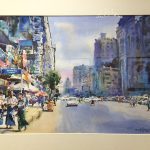
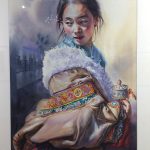
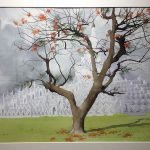
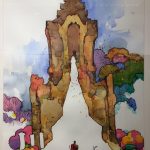
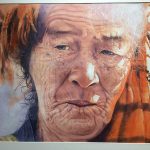
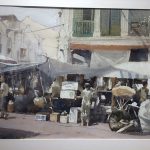
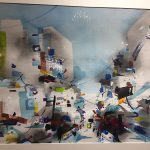
No comments:
Post a Comment
Note: Only a member of this blog may post a comment.